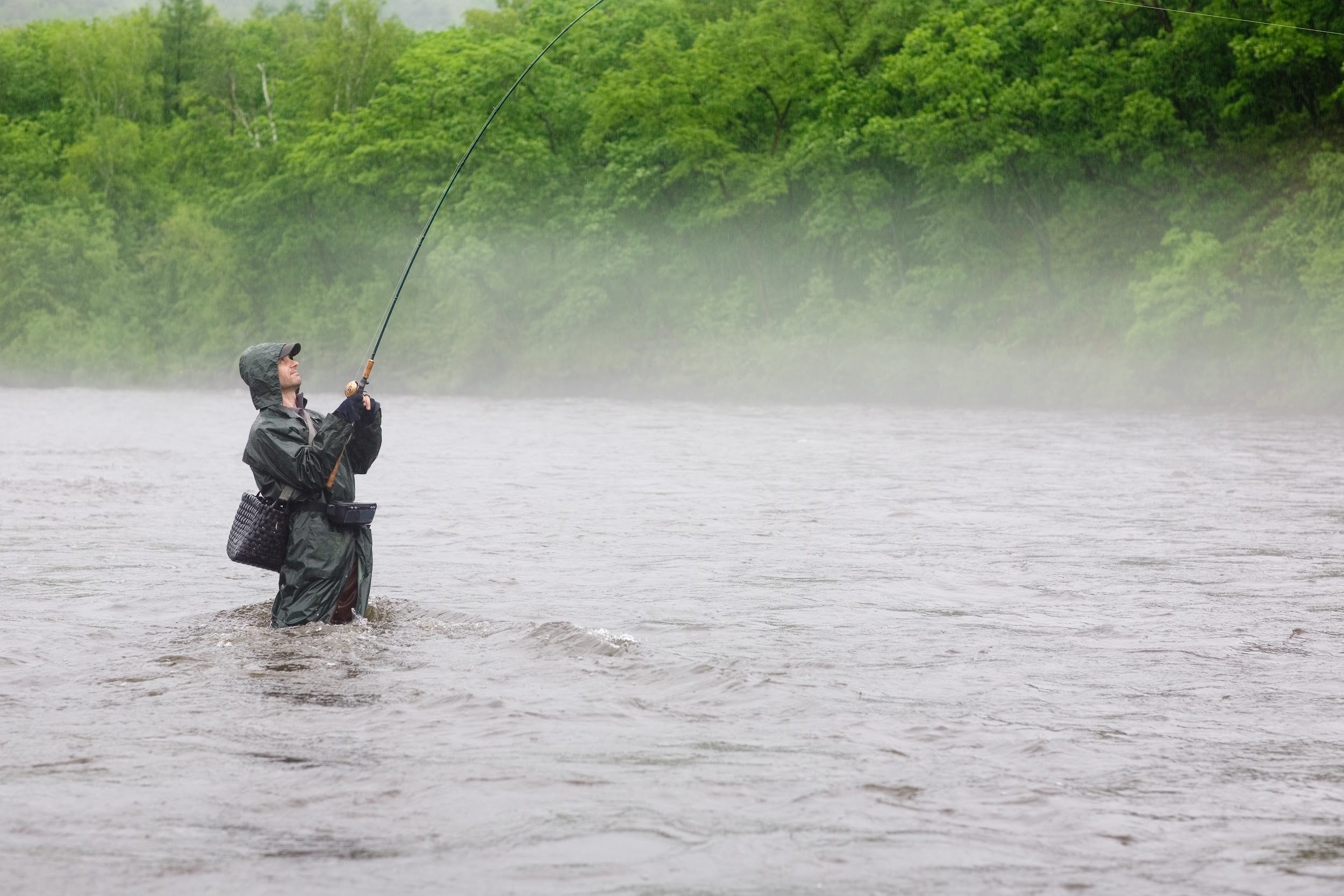Old timers usually have a few choice things to say about the best times to fish. Weather plays a big role in whether the fishing will be good on a given day.
Weather Conditions
While some weather patterns spell good fortune, other are bad omens for anglers.
Fronts
As cold fronts move in, they bring higher atmospheric pressure. With high pressure comes sluggish fish who’ll be disinterested in biting. Generally, fish will be sluggish for a few days after a storm moves out. Conversely, warm fronts bring lower pressure and storms, and that means good fishing. Low-pressure fronts will cause bubbles to rise to the surface of the water, bringing particles and little organisms, which in turn attracts fish. If you fish during these frontal movements, you can bet on bringing in a feast.
Heavy Rain
Violent storms will scare the fish (and most people). As long as it’s safe, you can fish in heavy rains. Smaller fish will be scared off by all the disturbance, but bigger predatory fish such as pike will bite during a downpour. Large storms bring high atmospheric pressures in their wake, so be sure to fish before the storm moves through.
Light Rain
Light rain can conjure up the insects and provide some cover for fish to feed, so light rains are generally great weather for fishing.
Clouds
Cloudy conditions can be great for fishing. Clouds provide cover for fish to move around in search of a meal, so cloudy days equate to fish that are on the prowl for something to eat.
Wind
Wind moves around water and food on the surface, so bait fish generally feed behind the wind, and game fish feed on the bait fish. On these days, cast into the wind so your bait naturally moves with the wind.
Temperatures
Is there an ideal temperature for fishing? How much of an affect does temperature have?
Whenever there are stretches of very hot or very cold weather, fish won’t really bite. During these times, these cold-blooded creatures behave sluggishly, and aren’t looking for food. When temperatures transition, these times are ideal for fishing, because these changes get fish moving around and more interested in food.
Seasons & Times of Day
What are the differences in seasons for fishermen? What’s the best time of day to fish?
Spring
Late afternoon and early evening are the best times to fish because the water will be warm and the fish will be on the hunt for a meal. Earlier in the day, the sun’s position and the cooler water temperatures will negatively impact fishing.
Summer
Fish feed most during early morning and late evening when temperatures are cooler and insects are most active.
Fall
In the fall, fish will bite most late afternoon towards dusk. This is the time when the water is the warmest, because the sun has been up for the maximum amount of time for the day. Also, fish are packing on weight for winter time, so the angling can be excellent during fall.
Winter
In winter, many anglers in the northern parts of the U.S. transition to ice fishing. Southern fishermen will have luck year-round, as temperatures rarely dip low enough to hinder fishing season. In the colder months, fishing will be best in late afternoon when the water surface reaches its peak temperature for the day.
Now that you know more about how weather affects fishing, you know that those gray, wet days can produce some of the best action. In addition to checking the weather report, check your gear to make sure you’ve got some good rain gear and waterproof boots so that your fishing trip won’t be disappointing. Quality outfitters like Carhartt have durable fishing gear that can make the difference when it really matters.
